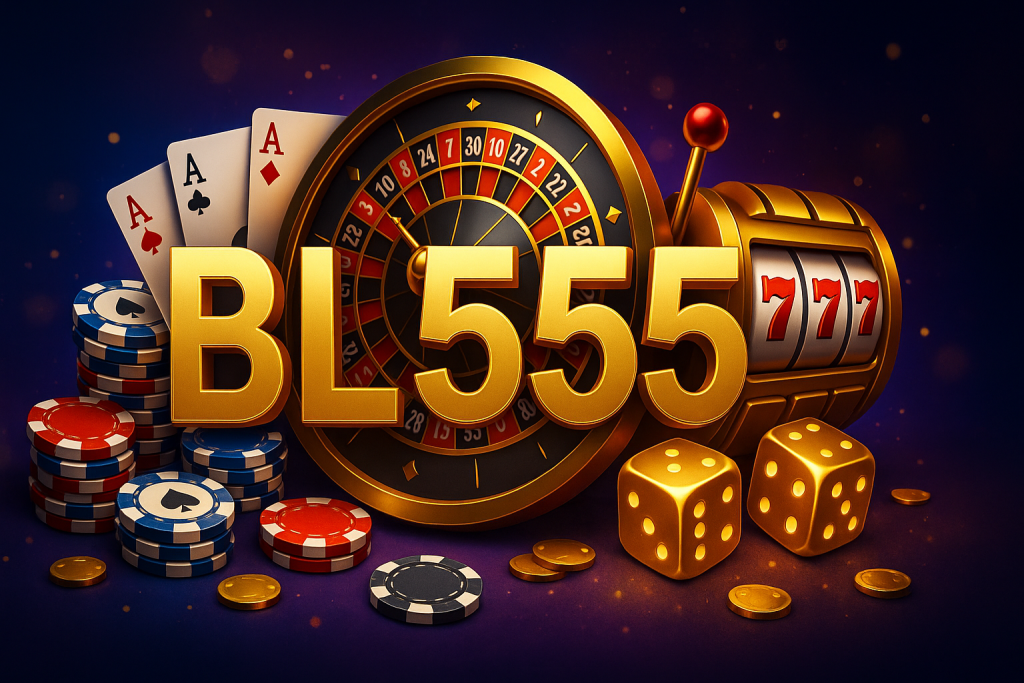
Casino games are not just about luck and chance—they are carefully crafted experiences designed to entertain and engage players on a deeper psychological level. Platforms like BL555 understand the importance of creating immersive and stimulating games that keep players coming back. The psychology behind casino game design plays a huge role in building excitement and encouraging user participation.
One of the most important psychological concepts used in casino games is the reward system. Games are designed to provide frequent positive feedback through wins bonus rounds or even simple animations. These small rewards trigger dopamine in the brain creating a sense of pleasure and reinforcing the desire to continue playing. Even when the reward is small or symbolic it still has a strong psychological impact.
Another key factor is the illusion of control. Many games such as blackjack or poker give players the feeling that their decisions can directly affect the outcome. This perceived control keeps players more involved and gives them a sense of mastery even if the odds are ultimately not in their favor. Slot machines also use this illusion with features like hold buttons or stop buttons that make players feel more in control than they really are.
Game designers also use near-miss experiences to keep players engaged. A near miss happens when the outcome is close to a win such as two matching symbols and a third that almost lines up. These moments are especially common in slot games and they give the impression that a win is just around the corner encouraging continued play.
Sound design is another powerful tool in casino game psychology. Uplifting music sound effects and jingles all contribute to the feeling of excitement. When a player wins even a small amount the sounds can create a celebration-like atmosphere. These positive audio cues are closely linked with reward processing in the brain and help reinforce the behavior.
Visual appeal also plays a big role. Bright colors smooth animations and engaging themes are used to draw in players and hold their attention. Themes based on mythology movies or adventures help players immerse themselves in a fantasy world making the experience feel like more than just gambling. The aesthetics of a game are carefully chosen to match different player personalities and preferences.
Pacing is another psychological element used in game design. Games that move quickly keep players in a constant state of engagement leaving little time to reflect on losses. By speeding up the gameplay casinos can increase the number of bets placed in a session and keep the adrenaline flowing. Many games also include auto-spin or quick-play features to maintain a fast pace.
Gamification elements are increasingly used in modern casino games. Features like leveling up earning badges completing missions and unlocking new content give players a sense of progression. These mechanics tap into a player’s competitive nature and offer long-term goals beyond individual wins or losses. They keep players motivated to continue and create a more interactive experience.
Variable reward schedules are also crucial. Unlike fixed rewards where a player knows exactly when they will win variable schedules offer rewards at unpredictable times. This randomness is more addictive and has been shown to be highly effective in reinforcing behavior. It’s the same principle that keeps people checking their phones or social media apps.
Bonuses and promotions further enhance the psychological draw. Offering free spins or extra credits creates a feeling of receiving something for nothing which encourages players to continue exploring the platform. These offers often come with a sense of urgency or exclusivity which triggers fear of missing out and drives immediate action.
In conclusion the psychology of casino game design is a carefully crafted blend of visuals sounds timing and rewards. These elements work together to create a captivating experience that goes beyond pure chance. Understanding these psychological principles helps players become more aware of how games are designed to influence behavior and make informed decisions about their gaming habits.